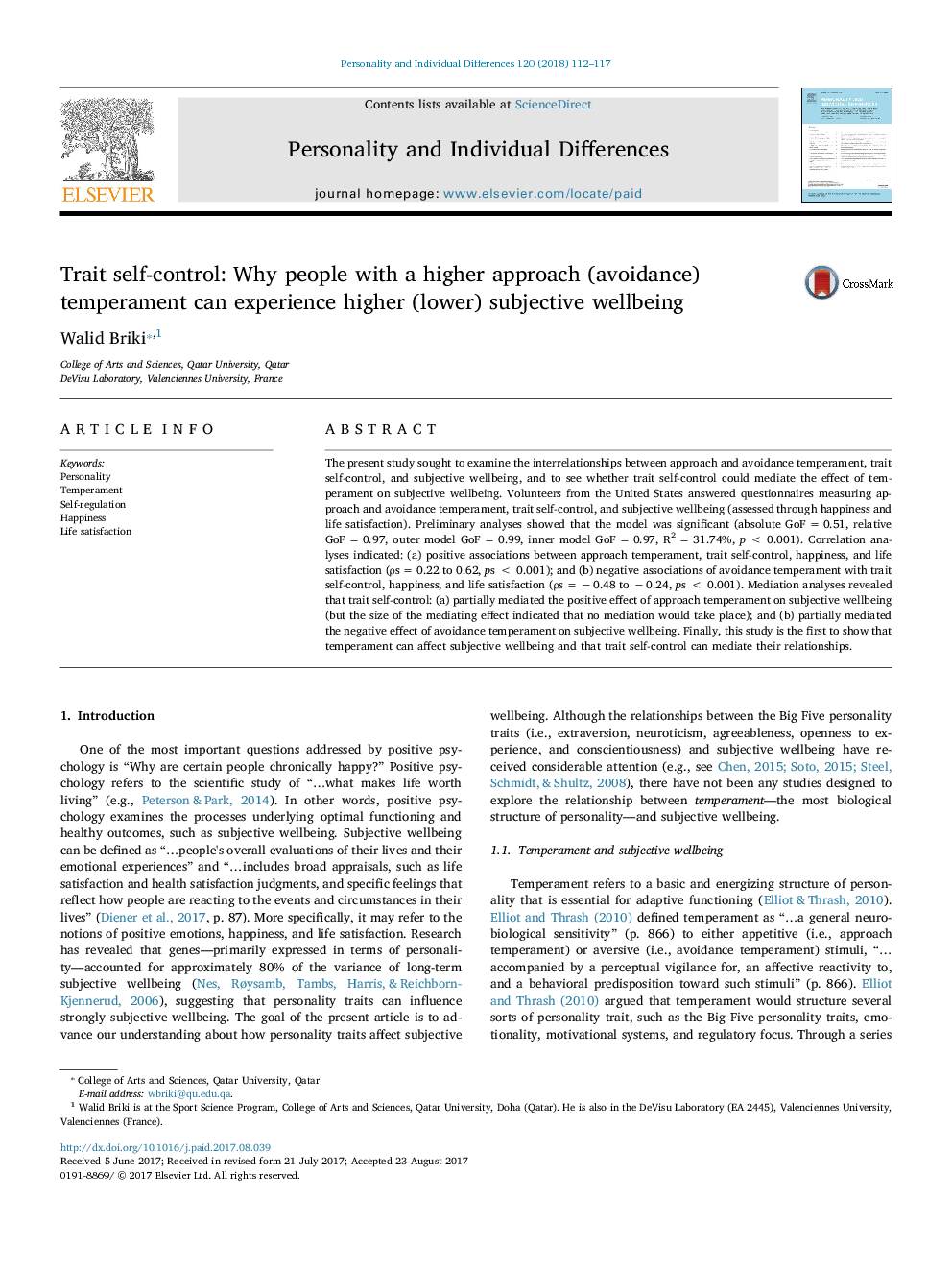ترجمه فارسی عنوان مقاله
خود کنترل قلبی: به این دلیل که افراد با رویکرد بالاتر (اجتناب) خلق می توانند سلامت ذهنی بالاتری داشته باشند
عنوان انگلیسی
Trait self-control: Why people with a higher approach (avoidance) temperament can experience higher (lower) subjective wellbeing
| کد مقاله | سال انتشار | تعداد صفحات مقاله انگلیسی |
|---|---|---|
| 132990 | 2018 | 6 صفحه PDF |
منبع

Publisher : Elsevier - Science Direct (الزویر - ساینس دایرکت)
Journal : Personality and Individual Differences, Volume 120, 1 January 2018, Pages 112-117
ترجمه کلمات کلیدی
شخصیت، دماسنج، خود تنظیم خوشبختی رضایت از زندگی،
کلمات کلیدی انگلیسی
Personality; Temperament; Self-regulation; Happiness; Life satisfaction;

